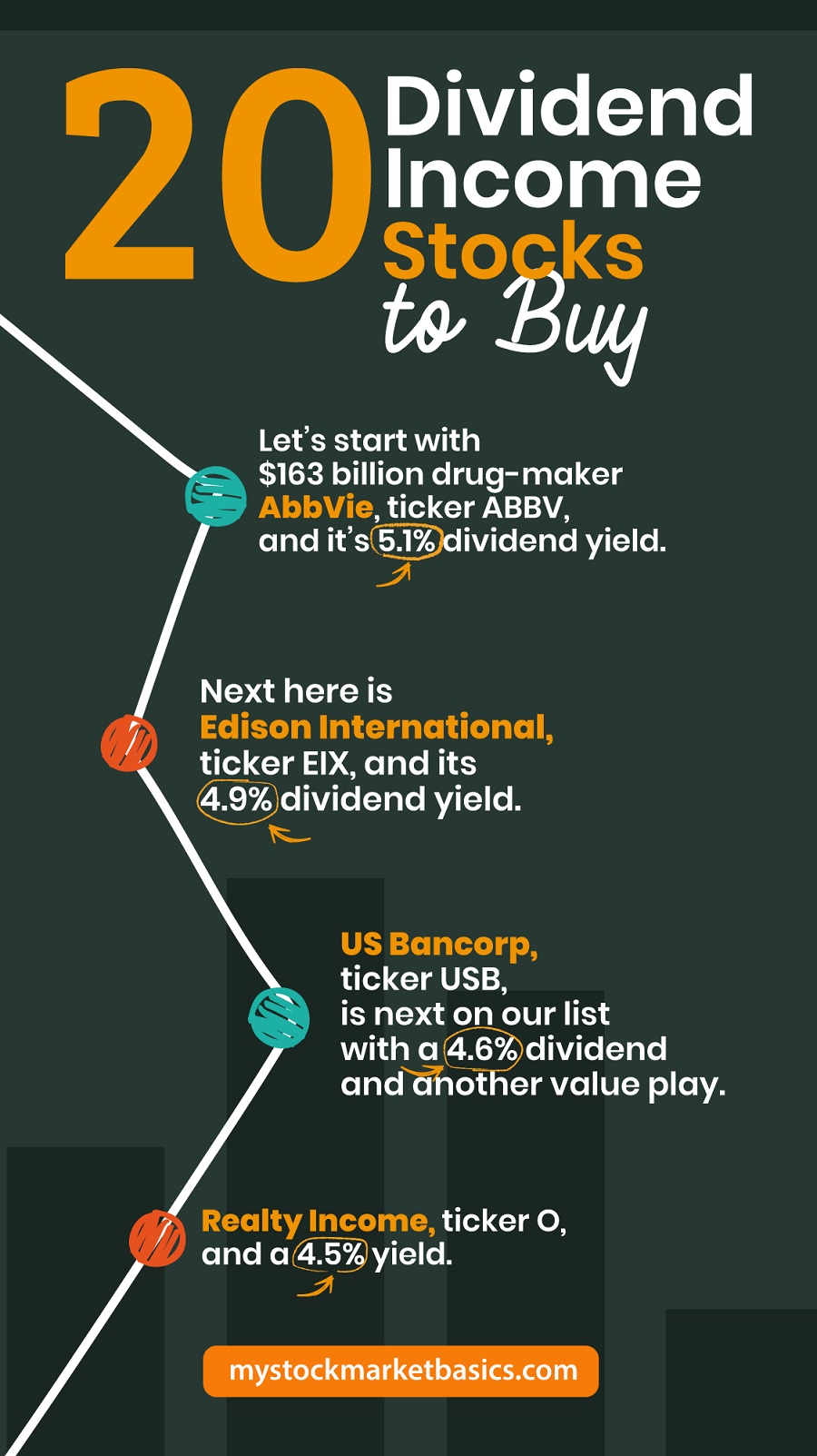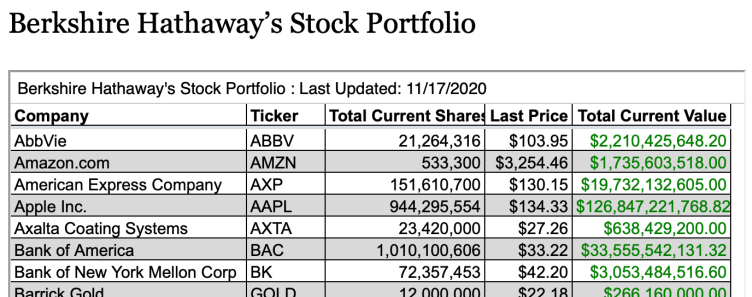
Fidelity funds that offer dividends are a great option for investors who want to maximize their returns. You can also select a particular income target fund. These funds have been designed to meet certain needs, including generating retirement income.
This income-oriented fund provides investors with a yield that is attractive and has a great potential for long-term growth. It invests in companies that pay high dividends. This fund is ideal for those who are looking to generate a stable stream of income.
It invests primarily in stocks with high dividends. This includes large-cap companies. The fund's holdings are concentrated in industrial, financial, energy and other companies that have a history of paying dividends.
The fund's top holdings include Amazon (AMZN), Apple (AAPL), Google parent company Alphabet (GOOG) and Tesla. It is known for its low cost and is often used in retirement plans.

Dividend mutual fund investments are an excellent way to diversify your portfolio and get a regular return. These funds tend to be affordable and professionally managed. They're an excellent option for people who want to build their portfolios but don't want to break the bank.
High yield bond fund is another way of generating income from your investments. These funds can have lower risks than investment grade bonds but are volatile and subject to state, federal and local taxes.
These funds are backed typically by a large team of researchers and give investors the chance to diversify their portfolios. They are also seen as the best choice for higher returns, and risk-adjusted ones over time.
Fidelity High Income Fund, one of the most popular dividend funds on the market, pays an impressive yield each year and has consistently outperformed its competitors. It holds shares from a range of companies including energy giant Chevron CVX (AET) and health-care firm Aetna AET (AET).
This actively-managed fund is an excellent choice for investors seeking the highest returns possible with minimal market risk. It targets high-growth stocks, such as those in healthcare and energy.

It has a relatively low cost and uses a proprietary research methodology to identify the best stocks in each sector. This research is combined with active management to achieve the best results.
Dividend-focused funds are becoming increasingly popular as an investment option, because they provide diversification outside the United States. This Fidelity Global Fund aims to identify the best international stock opportunities for dividend growth.
The fund's portfolio managers and analysts are experienced professionals who work to achieve excellent results on a long-term basis. They also ensure that their portfolios have a good level of diversification and are not overly exposed to any one industry.
Fidelity, with its experienced investment team and management, is one of the best actively-managed funds in the world. It doesn't matter if the lead fund manager leaves because the whole team is well-versed with the markets.
FAQ
What are some of the benefits of investing with a mutual-fund?
-
Low cost - buying shares directly from a company is expensive. It's cheaper to purchase shares through a mutual trust.
-
Diversification - Most mutual funds include a range of securities. One security's value will decrease and others will go up.
-
Management by professionals - professional managers ensure that the fund is only investing in securities that meet its objectives.
-
Liquidity - mutual funds offer ready access to cash. You can withdraw your funds whenever you wish.
-
Tax efficiency – mutual funds are tax efficient. This means that you don't have capital gains or losses to worry about until you sell shares.
-
For buying or selling shares, there are no transaction costs and there are not any commissions.
-
Mutual funds are simple to use. All you need to start a mutual fund is a bank account.
-
Flexibility – You can make changes to your holdings whenever you like without paying any additional fees.
-
Access to information- You can find out all about the fund and what it is doing.
-
Ask questions and get answers from fund managers about investment advice.
-
Security - You know exactly what type of security you have.
-
Control - you can control the way the fund makes its investment decisions.
-
Portfolio tracking – You can track the performance and evolution of your portfolio over time.
-
Easy withdrawal - You can withdraw money from the fund quickly.
There are disadvantages to investing through mutual funds
-
There is limited investment choice in mutual funds.
-
High expense ratio - the expenses associated with owning a share of a mutual fund include brokerage charges, administrative fees, and operating expenses. These expenses will eat into your returns.
-
Insufficient liquidity - Many mutual funds don't accept deposits. These mutual funds must be purchased using cash. This limit the amount of money that you can invest.
-
Poor customer service - there is no single contact point for customers to complain about problems with a mutual fund. Instead, you will need to deal with the administrators, brokers, salespeople and fund managers.
-
Ridiculous - If the fund is insolvent, you may lose everything.
Who can trade on the stock market?
Everyone. However, not everyone is equal in this world. Some people have better skills or knowledge than others. They should be recognized for their efforts.
But other factors determine whether someone succeeds or fails in trading stocks. For example, if you don't know how to read financial reports, you won't be able to make any decisions based on them.
You need to know how to read these reports. It is important to understand the meaning of each number. Also, you need to understand the meaning of each number.
This will allow you to identify trends and patterns in data. This will assist you in deciding when to buy or sell shares.
If you're lucky enough you might be able make a living doing this.
How does the stock exchange work?
Shares of stock are a way to acquire ownership rights. The shareholder has certain rights. He/she has the right to vote on major resolutions and policies. He/she has the right to demand payment for any damages done by the company. He/she also has the right to sue the company for breaching a contract.
A company cannot issue more shares that its total assets minus liabilities. It is known as capital adequacy.
Companies with high capital adequacy rates are considered safe. Companies with low ratios are risky investments.
How do I choose an investment company that is good?
A good investment manager will offer competitive fees, top-quality management and a diverse portfolio. The type of security that is held in your account usually determines the fee. Some companies have no charges for holding cash. Others charge a flat fee each year, regardless how much you deposit. Others charge a percentage of your total assets.
You also need to know their performance history. Poor track records may mean that a company is not suitable for you. You want to avoid companies with low net asset value (NAV) and those with very volatile NAVs.
Finally, you need to check their investment philosophy. To achieve higher returns, an investment firm should be willing and able to take risks. If they aren't willing to take risk, they may not meet your expectations.
What is the difference?
Brokers are individuals who help people and businesses to buy and sell securities and other forms. They take care all of the paperwork.
Financial advisors have a wealth of knowledge in the area of personal finances. They help clients plan for retirement and prepare for emergency situations to reach their financial goals.
Banks, insurers and other institutions can employ financial advisors. They may also work as independent professionals for a fee.
Consider taking courses in marketing, accounting, or finance to begin a career as a financial advisor. Also, it is important to understand about the different types available in investment.
What is a mutual fund?
Mutual funds are pools of money invested in securities. They provide diversification so that all types of investments are represented in the pool. This reduces risk.
Professional managers oversee the investment decisions of mutual funds. Some funds also allow investors to manage their own portfolios.
Because they are less complicated and more risky, mutual funds are preferred to individual stocks.
Why are marketable securities Important?
An investment company's primary purpose is to earn income from investments. It does so by investing its assets across a variety of financial instruments including stocks, bonds, and securities. These securities are attractive to investors because of their unique characteristics. They may be considered to be safe because they are backed by the full faith and credit of the issuer, they pay dividends, interest, or both, they offer growth potential, and/or they carry tax advantages.
It is important to know whether a security is "marketable". This refers to how easily the security can be traded on the stock exchange. A broker charges a commission to purchase securities that are not marketable. Securities cannot be purchased and sold free of charge.
Marketable securities are government and corporate bonds, preferred stock, common stocks and convertible debentures.
These securities are often invested by investment companies because they have higher profits than investing in more risky securities, such as shares (equities).
How do I invest in the stock market?
You can buy or sell securities through brokers. Brokers can buy or sell securities on your behalf. Trades of securities are subject to brokerage commissions.
Brokers often charge higher fees than banks. Because they don't make money selling securities, banks often offer higher rates.
A bank account or broker is required to open an account if you are interested in investing in stocks.
If you hire a broker, they will inform you about the costs of buying or selling securities. The size of each transaction will determine how much he charges.
Ask your broker about:
-
Minimum amount required to open a trading account
-
Are there any additional charges for closing your position before expiration?
-
What happens if you lose more that $5,000 in a single day?
-
How long can you hold positions while not paying taxes?
-
How you can borrow against a portfolio
-
Transfer funds between accounts
-
How long it takes to settle transactions
-
The best way for you to buy or trade securities
-
How to avoid fraud
-
How to get help if needed
-
Whether you can trade at any time
-
Whether you are required to report trades the government
-
How often you will need to file reports at the SEC
-
Do you have to keep records about your transactions?
-
Whether you are required by the SEC to register
-
What is registration?
-
How does it affect me?
-
Who should be registered?
-
What time do I need register?
Statistics
- US resident who opens a new IBKR Pro individual or joint account receives a 0.25% rate reduction on margin loans. (nerdwallet.com)
- Individuals with very limited financial experience are either terrified by horror stories of average investors losing 50% of their portfolio value or are beguiled by "hot tips" that bear the promise of huge rewards but seldom pay off. (investopedia.com)
- "If all of your money's in one stock, you could potentially lose 50% of it overnight," Moore says. (nerdwallet.com)
- Our focus on Main Street investors reflects the fact that American households own $38 trillion worth of equities, more than 59 percent of the U.S. equity market either directly or indirectly through mutual funds, retirement accounts, and other investments. (sec.gov)
External Links
How To
How to open a Trading Account
Opening a brokerage account is the first step. There are many brokers out there, and they all offer different services. Some brokers charge fees while some do not. Etrade, TD Ameritrade Fidelity Schwab Scottrade Interactive Brokers are some of the most popular brokerages.
After you have opened an account, choose the type of account that you wish to open. Choose one of the following options:
-
Individual Retirement Accounts (IRAs).
-
Roth Individual Retirement Accounts
-
401(k)s
-
403(b)s
-
SIMPLE IRAs
-
SEP IRAs
-
SIMPLE 401K
Each option has its own benefits. IRA accounts have tax advantages but require more paperwork than other options. Roth IRAs are a way for investors to deduct their contributions from their taxable income. However they cannot be used as a source or funds for withdrawals. SIMPLE IRAs are similar to SEP IRAs except that they can be funded with matching funds from employers. SIMPLE IRAs can be set up in minutes. They allow employees to contribute pre-tax dollars and receive matching contributions from employers.
Finally, you need to determine how much money you want to invest. This is your initial deposit. Most brokers will offer you a range deposit options based on your return expectations. Depending on the rate of return you desire, you might be offered $5,000 to $10,000. The lower end of the range represents a prudent approach, while those at the top represent a more risky approach.
Once you have decided on the type account you want, it is time to decide how much you want to invest. There are minimum investment amounts for each broker. These minimums vary between brokers, so check with each one to determine their minimums.
Once you have decided on the type of account you would like and how much money you wish to invest, it is time to choose a broker. You should look at the following factors before selecting a broker:
-
Fees-Ensure that fees are transparent and reasonable. Many brokers will offer trades for free or rebates in order to hide their fees. However, some brokers charge more for your first trade. Be cautious of brokers who try to scam you into paying additional fees.
-
Customer service – You want customer service representatives who know their products well and can quickly answer your questions.
-
Security – Choose a broker offering security features like multisignature technology and 2-factor authentication.
-
Mobile apps – Check to see if the broker provides mobile apps that enable you to access your portfolio wherever you are using your smartphone.
-
Social media presence. Find out whether the broker has a strong social media presence. It might be time for them to leave if they don't.
-
Technology - Does the broker utilize cutting-edge technology Is the trading platform intuitive? Are there any issues when using the platform?
Once you have decided on a broker, it is time to open an account. Some brokers offer free trials, while others charge a small fee to get started. You will need to confirm your phone number, email address and password after signing up. Next, you'll have to give personal information such your name, date and social security numbers. Finally, you will need to prove that you are who you say they are.
Once verified, you'll start receiving emails form your brokerage firm. These emails will contain important information about the account. It is crucial that you read them carefully. You'll find information about which assets you can purchase and sell, as well as the types of transactions and fees. Keep track of any promotions your broker offers. These promotions could include contests, free trades, and referral bonuses.
Next, you will need to open an account online. Opening an online account is usually done through a third-party website like TradeStation or Interactive Brokers. Both of these websites are great for beginners. When opening an account, you'll typically need to provide your full name, address, phone number, email address, and other identifying information. After all this information is submitted, an activation code will be sent to you. This code is used to log into your account and complete this process.
After opening an account, it's time to invest!